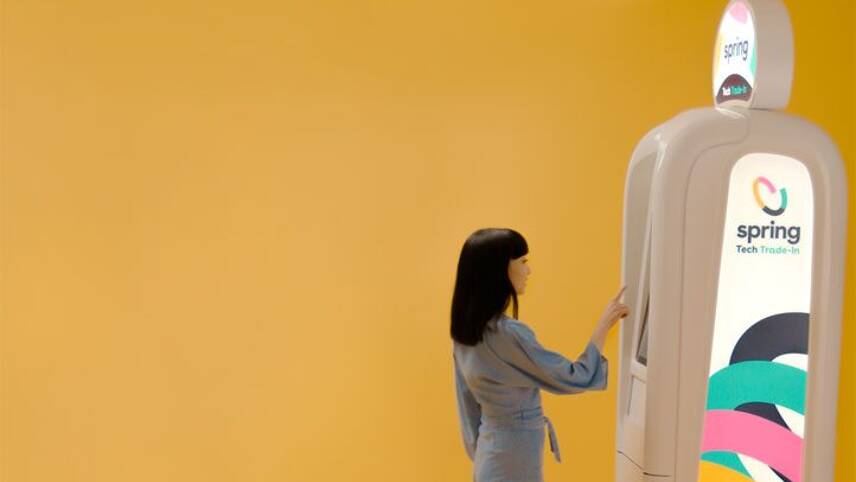Register for free and continue reading
Join our growing army of changemakers and get unlimited access to our premium content

Pictured: What the tech return kiosks at Co-op stores will look like. Image: Spring
The agreement from Microsoft follows on from a shareholder resolution filed by not-for-profit As You Sow this summer. The resolution argued that Microsoft “actively restricts consumer access to device repairability, undermining sustainability commitments”. It also warned that, with the rise of right-to-repair legislation in geographies including the UK and EU, it is only a matter of time before Microsoft’s largest market, the US, follows suit.
Responding to the resolution, Microsoft has released a statement stipulating that it will explore measures to improve access to repair services, improve repair instructions and make parts available for longer. It will also produce a report outlining the business case for repair, including environmental, social and economic benefits.
As You Sow’s waste programme coordinator Kelly McBee said Microsoft’s response was an “encouraging step”.
“I applaud the sincerity that Microsoft brought to the table in negotiating this agreement and hope additional manufacturers follow suit,” said McBee. “Microsoft’s action demonstrates that the company recognises that extending the lifetime of its devices through repair is essential to meeting its climate goals and that the company is serious about taking action to do so.”
Microsoft is just one in a line of tech companies that have been implored to extend the life of their products. Late last year, MPs on the Environmental Audit Committee (EAC) accused electronics brands – particularly those that sell mainly online – of “dodging responsibility” for their e-waste impacts. The Committee took particular aim at Apple and Amazon.
Co-op
In related news, the Co-op has partnered with tech recirculation platform Spring to trial its service at 20 of its stores in Greater London.
Under the scheme, customers are encouraged to bring their old phones, tablets, smartwatches and e-readers to in-store kiosks, where they will be purchased, with customers compensated via a Spring account within a maximum of five days. Spring will then assess the condition of the items before facilitating repair or refurbishment before reuse. Items in poor condition may be recycled.
“Co-op is committed to operating at the heart of local life and creating value in our communities – we are working to develop new ways to provide added services and choice, conveniently,” said the retailer’s director of innovation and format, Mark Matthews.
“Our partnership with Spring will make it easy for consumers to recycle or reuse their electronic devices locally and prevent unnecessary waste. Making it easier for consumers to make small changes to their lives, can add up to making a big difference for our environment.”
Co-op has already committed to launching the service at stores in Manchester, Leeds, Brighton, and Birmingham in the future.
As for Spring, the business is aiming to host more than 250 take-back ‘pods’ at UK retail locations within the next 12 months. These facilities should collectively process 100,000 electronic devices. Spring has already processed 150,000 devices by working alone and hopes retail partnerships will make its offering easier to access.
Also this week, global IT firm Park Place Technologies has announced that it is planning to partner with corporates over the coming months, to take their used laptops and refurbish them. The refurbished laptops will be provided to female students in Ireland who have little or no access to technology.
Park Place Technologies has partnered with Ireland-based non-profit I Wish, which aims to improve access to science, technology, engineering and maths (STEM) education to disadvantaged girls and women, to deliver the scheme.
Both organisations are keen to highlight that the initiative will have social and environmental benefits. In developing the scheme, they were told by teachers that “having your own laptop allows you to have a meaningful tech experience and also full access to necessary programmes, quality of research would improve, and [students] would be on even playing field with their peers”.
Sarah George


Please login or Register to leave a comment.